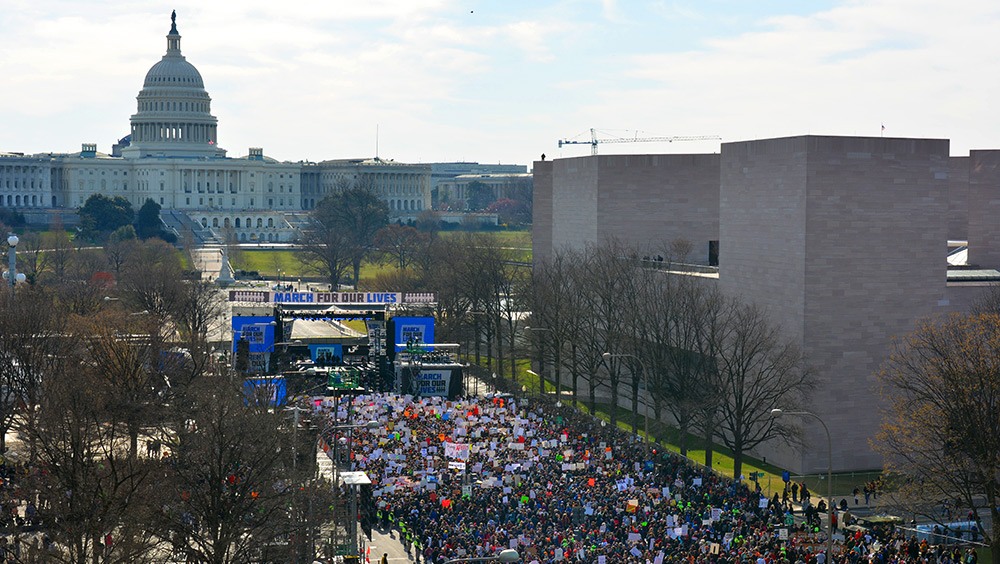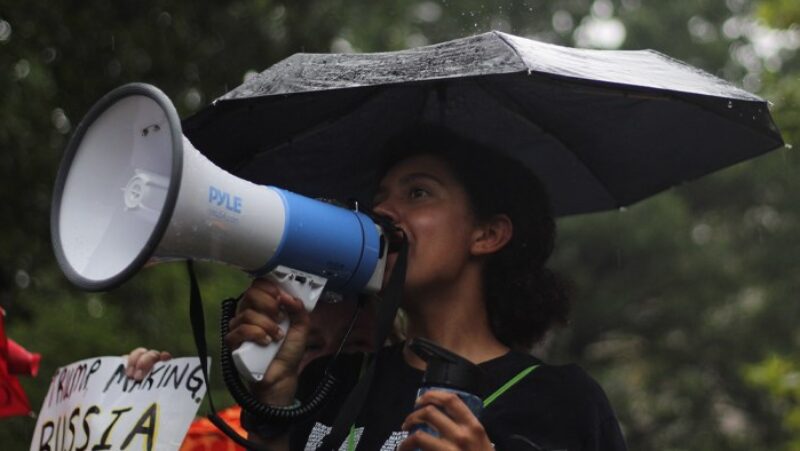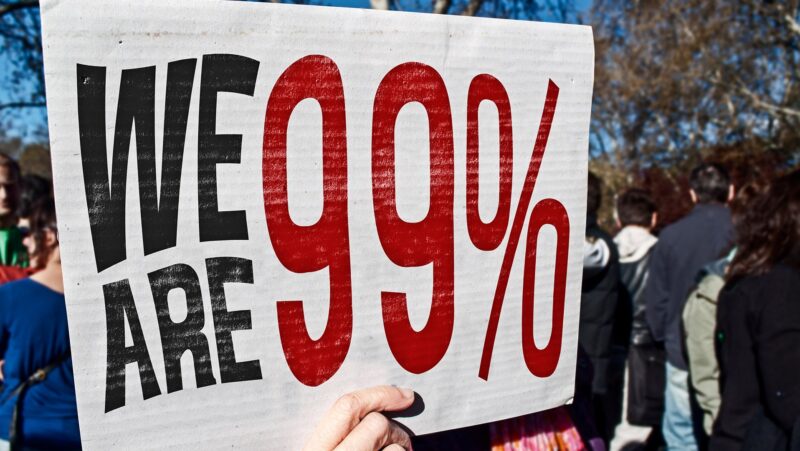Freedom of Association: The Lesser-Known First Amendment Right

The First Amendment right to peaceably assemble protects more than marches.
Assembly includes the right to gather publicly for rallies, marches and protests. Demonstrations play a key role in generating public interest in and raising awareness about activists’ causes.
The First Amendment, though, also protects much more than walking together, carrying signs and speaking to crowds.
It also includes the right to meet, organize and plan with others, sometimes referred to as freedom of association.
What is freedom of association?
Freedom of assembly is explicitly guaranteed in the First Amendment and protects the right of people to gather to speak their minds. But protests and other activities under the First Amendment don’t just happen. That’s why, even though it is not specifically mentioned in the First Amendment, the Supreme Court has identified a freedom of association that allows people to create groups and otherwise organize together.
Discover three examples of freedom of association
Civil rights movement marchers organized for equality
During the civil rights movement, lunch counter protests, sit-ins and boycotts spurred moves toward equal access for Black Americans to restaurants, schools and public transportation.
The August 1963 March on Washington for Jobs and Freedom, one of the largest civil rights demonstrations in U.S. history, shaped civil rights legislation under consideration and later passed by Congress.
The march from Selma to Montgomery in March 1965 was part of a campaign to register Black voters in Alabama. After the March was twice shut down, once violently by state troopers on “Bloody Sunday,” President Lyndon B. Johnson called on Congress to pass federal voting rights legislation, which it did later that year.
Behind the scenes of these highly publicized protests, civil rights organizers were also fighting for freedom of association. NAACP chapters in Louisiana, Alabama and Arkansas faced shutdown after state officials tried to get the groups to hand over their membership lists, which would have placed members in danger. The Alabama NAACP and the Arkansas NAACP leader Daisy Bates went to court. A series of Supreme Court decisions took state law enforcement and lawmakers to task for limiting the right to organize privately. These decisions protected civil rights organizing.
State laws to limit gathering in protest are growing. See how that threatens the First Amendment freedoms of assembly and petition.
March for Life participants campaign for policies to end abortion
The March for Life is an annual protest opposing abortion. People have gathered for the march each year since 1973 when the Supreme Court’s Roe v. Wade decision ruled that abortion access was permitted to varying extents during pregnancy under the right to privacy.
In the 1950s and ’60s, activists across the country had moved to loosen or repeal longstanding state laws limiting abortion access. In response, a growing number also mobilized to lobby legislatures to retain or reenact the limits.
Following the Supreme Court’s ruling in Roe, freedom of association enabled many people and organizations who participated in the March for Life to also organize political action groups to campaign for candidates who would support policies and approve judges aligned with their views.
When the Supreme Court overturned Roe in June 2022, people across the spectrum of views on abortion rallied and protested at the court and around the country in response. Organizers had petitioned legislatures to recommend policies that could be enacted should the court’s stance shift – and many states have since done so.
More than 50 years of public marches and behind-the-scenes organizing have shaped the debate and impacted policies around abortion.
March for Our Lives youth petition for gun control policies
After losing 14 classmates and three faculty members in a shooting at their school on Valentine’s Day in 2018, Marjory Stoneman Douglas High School students organized the March for Our Lives in Washington, D.C., just six weeks later.
The Florida teens spread the word about their protest against gun violence via social media. More than one million people participated across the nation — one of the largest protests in U.S. history.
Behind the scenes of this now annual march is a youth-led movement, powered by freedom of association, to change gun policies and encourage lawmakers to address issues that contribute to violence.
The students first met with Florida state lawmakers days after the shooting to advocate for legislative action.
Later, they planned a nationwide tour to register young voters, modeled in part on the civil rights movement’s 1964 Freedom Summer voter registration campaign.
According to the Pew Charitable Trusts and the Giffords Law Center, in the six months following the shooting, 50 new laws to regulate guns were passed in 25 states, spurred in part by the students’ activism.
The March for Our Lives organization continues to petition at the state and national levels for gun control legislation and to organize young people to vote for candidates who share their views.
The power of freedom of association
Behind the largest protests and most historic marches, the ability to assemble and associate provides movements with the power to influence social and policy change. Strength in numbers can make petitions more powerful and effective in generating government action.
The private expressions of association don’t get televised like marches do, but they’re both ways to exercise important First Amendment freedoms.
The First Amendment Right to Protest Has Limits
‘Occupy’ Protests, Tea Party Rallies: Assembly, Petition in Action
Related Content

